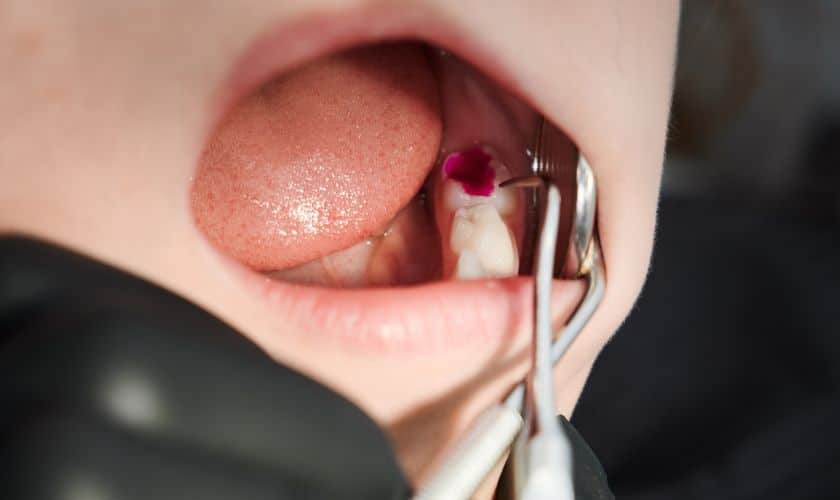Are you experiencing a sudden toothache that just won’t quit? Or maybe you’ve encountered an unexpected dental emergency and don’t know what to do. Don’t worry, we’ve all been there! When it comes to dental emergencies, time is of the essence. Knowing how to handle these situations can make all the difference in preserving your oral health and relieving your discomfort. In this blog post, we’ll walk you through exactly what to do when you find yourself in need of an emergency dentist. So grab a seat (if your tooth allows it) and let’s dive right in!
What To Do If You Have a Dental Emergency
Dental emergencies can be quite scary and painful, but it’s important to stay calm and take immediate action. The first thing you should do if you find yourself in a dental emergency is to call your dentist right away. Many dentists offer emergency services or have an after-hours number where they can be reached.
If you’re unable to reach your regular dentist, don’t panic! There are other options available. You can try calling an emergency dental clinic in your area or even visit the nearest hospital’s emergency department. They will be able to provide temporary relief until you can see an emergency dentist.
In the meantime, there are a few things you can do at home to manage the pain or discomfort. Rinse your mouth with warm saltwater to help alleviate any swelling or irritation. Applying a cold compress on the outside of your cheek near the affected area may also help reduce pain and inflammation.
Remember, it’s crucial not to delay seeking treatment for a dental emergency as it could potentially worsen the situation. Stay prepared by keeping important contact information handy so that you know who to call when needed.
Stay tuned for more tips on dealing with dental emergencies in our next blog section!
What to do if you can’t get to an emergency dentist
If you find yourself in a situation where you can’t get to an emergency dentist, don’t panic. There are still steps you can take to alleviate your discomfort and ensure that the issue doesn’t worsen.
Try calling your regular dentist’s office. Even if they’re closed, they may have an after-hours line or voicemail with instructions for emergencies. They might be able to offer advice on how to manage the situation until you can see a professional.
Next, consider reaching out to urgent care centers or hospitals in your area. While they may not have dentists on staff, they could provide temporary relief by prescribing pain medication or antibiotics if necessary.
In the meantime, there are some at-home remedies you can try. Applying a cold compress to the affected area can help reduce swelling and numb any pain temporarily. Over-the-counter pain relievers like ibuprofen or acetaminophen may also provide some relief.
Another option is seeking advice from dental helplines or online forums where professionals might be available to give guidance based on your specific symptoms.
Remember, these suggestions are just temporary measures until you’re able to visit an emergency dentist. It’s crucial not to ignore dental emergencies as prompt treatment is essential for preventing further complications down the line.
Stay calm and take proactive steps toward resolving your dental emergency as soon as possible!
Summary
When it comes to dental emergencies, it’s important to act quickly and efficiently. The first step is to remain calm and assess the situation. If you are experiencing severe pain or have a broken tooth, it’s crucial to seek immediate dental care. Contact your regular dentist or find an emergency dentist in your area who can provide prompt assistance.
In some cases, getting to a dentist right away may not be possible. In these situations, there are steps you can take at home to manage the pain and minimize further damage until professional help is available. These include rinsing your mouth with warm saltwater, applying a cold compress to reduce swelling, taking over-the-counter pain medication as directed, and avoiding hard or chewy foods.
Remember that prevention is key when it comes to dental emergencies. Maintaining good oral hygiene practices such as regular brushing and flossing, along with routine visits to your dentist for check-ups and cleanings can help prevent many dental issues from escalating into emergencies.
It’s also essential to have a plan in place for unexpected dental emergencies. Keep the contact information of your regular dentist handy and research nearby emergency dentists before you need them so that you’re prepared if an urgent situation arises.
Knowing what steps to take when faced with a dental emergency can make all the difference in preserving your oral health. Whether you can get immediate access to an emergency dentist or need temporary measures until professional help is available, staying calm and taking appropriate action will ensure proper care for your teeth during times of crisis. Remember: swift action today could save you from more extensive treatment down the road!
